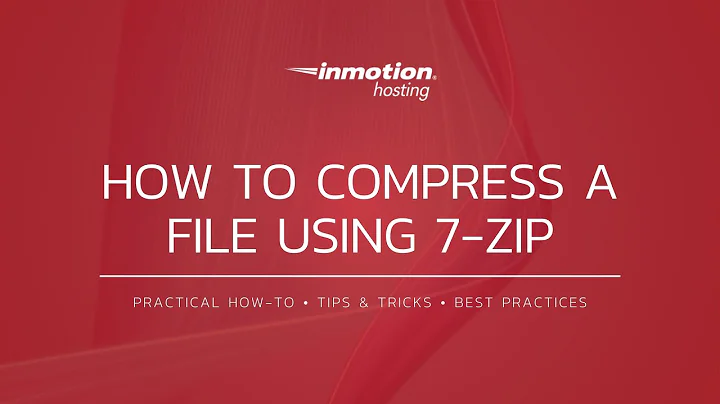7zip: How to exclude file types?
Solution 1
7z only accepts a single archive within its arguments, but you're passing a wildcard, which expands to the full content of the current working directory. Another issue is that the wildcards within the arguments will expand as well, either if non-quoted or double-quoted.
So you should only extract a single archive per command. You should remove the wildcard at the end, specify a single archive and single-quote the arguments:
7z e '-x!*.epub' '-x!*.pdf' '-x!*.html' '-x!*.azw3' '-x!*.mobi' '-x!*.txt' '-x!*.HTML' '-x!*.opf' archive.7z
To extract multiple archives at once, however, you can use multiple methods:
-
bash:for archive in *.7z; do 7z e '-x!*.epub' '-x!*.pdf' '-x!*.html' '-x!*.azw3' '-x!*.mobi' '-x!*.txt' '-x!*.HTML' '-x!*.opf' "$archive"; done -
find:find . -maxdepth 1 -type f -iname "*.7z" -exec 7z e '-x!*.epub' '-x!*.pdf' '-x!*.html' '-x!*.azw3' '-x!*.mobi' '-x!*.txt' '-x!*.HTML' '-x!*.opf' {} \;
Solution 2
From man 7z:
-x[r[-|0]]]{@listfile|!wildcard}
Exclude filenames
To exclude files (or types) you can use the following command:
7z a [email protected] backup.7z /whatever/dirs/or/files
Notice the use of -xr instead of -x. The r indicates recursive so it can match excluded files in deep folder hierarchies
The exclude.txt file is a list of files or file types, separated by carriage returns, like this:
*.epub
*.pdf
*.html
*.HTML
*.azw3
*.mobi
*.opf
*.txt
Solution 3
Maybe extracting from multiple archives wasn't possible at the time of the question.
As of 2020, 7z can extract from multiple archives , but you need to specify them with a special flag:
-ai[r[-|0]]{@listfile|!wildcard}
Include archives
Note that when you use this you no longer need to specify the archive_name on the command line (where you passed *), so you need to disable it with the -an flag.
The rest of your flags work as you put them, with the exception of the quotes: they are necessary to avoid interpretation of ! and * by your shell. In bash, double quotes ("..") still allow expansions, so need to use single quotes ('...'). The alternative is to escape these characters, e.g. -x\!\*.html.
So your command becomes:
7z e -an '-ai!*' '-x!*.epub' '-x!*.pdf' '-x!*.html' '-x!*.azw3' '-x!*.mobi' '-x!*.txt' '-x!*.HTML' '-x!*.opf'
My recommendation is to make the inclusion flag a bit more specific than *, because it will select all the files in the directory. And since you used the e command (not x) and you did not specify an output directory (with -o flag), the current directory will be populated with all the files from your archive. This means that if you run the same command again, the * selector will now select not only the archives, but also all the extracted files.
Related videos on Youtube
daka
Updated on September 18, 2022Comments
-
 daka over 1 year
daka over 1 yearI want to exclude the following file types:
- epub
- html (upper case too)
- azw3
- mobi
- opf
- txt
I have this so far which doesn't seem to work, i get an error saying "Incorrect Command Line".
7z e "-x!*.epub" "-x!*.pdf" "-x!*.html" "-x!*.azw3" "-x!*.mobi" "-x!*.txt" "-x!*.HTML" "-x!*.opf" *I also tried the above command without double quotes.
I created the above command using info from here (for windows) but it doesn't seem to work under Linux.
-
 daka almost 9 yearsI have a lot of archives which need extracting, hence the use of the wildcard at the end to extract ALL archives.
daka almost 9 yearsI have a lot of archives which need extracting, hence the use of the wildcard at the end to extract ALL archives. -
 kos almost 9 years@sudoman Are you sure this is supported by
kos almost 9 years@sudoman Are you sure this is supported by7z? Mind to try with a single archive? -
 kos almost 9 years@Ron I agree, but the problem here is that OP can't extract multiple archive at once; however upvoted your post
kos almost 9 years@Ron I agree, but the problem here is that OP can't extract multiple archive at once; however upvoted your post -
 kos almost 9 years@sudoman I've found another flaw in your original command, plus I added a couple of way to extract multiple archives at once
kos almost 9 years@sudoman I've found another flaw in your original command, plus I added a couple of way to extract multiple archives at once -
 muru over 6 yearsWhy
muru over 6 yearsWhysudo? And what does this add to the existing answers?






